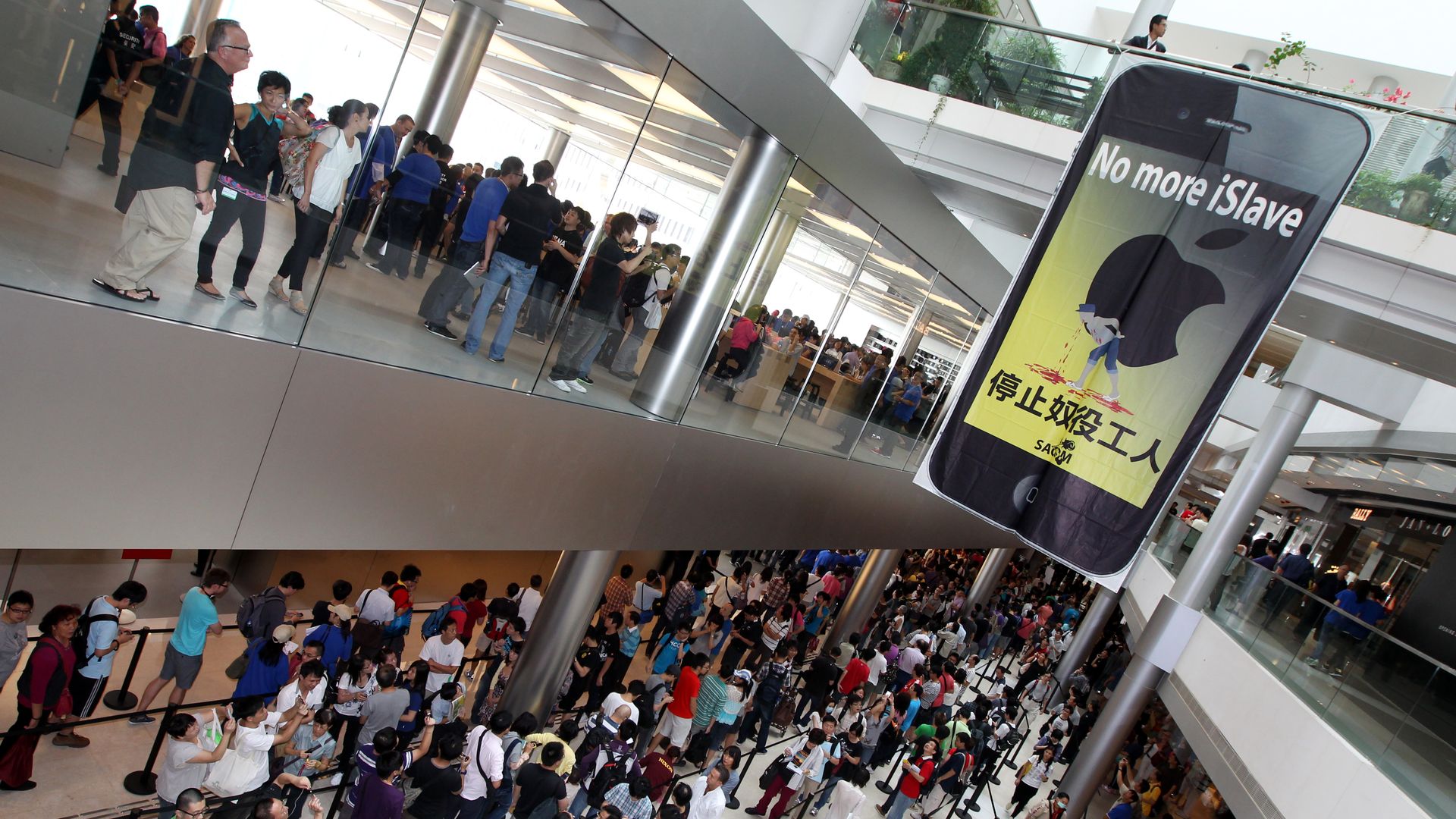Oriana Gonzalez

A banner hung by protesters in a Hong Kong mall. The protesters demonstrated against alleged workers' rights violations at the factories that produce Apple products, September 2011. Photo: Felix Wong/South China Morning Post via Getty Images
Apple paid an outside firm to lobby Congress on legislation targeting American companies working in areas in China that may use forced labor, The Information first reported. It remains unclear whether Apple lobbied against or for the bill.
Why it matters: Apple has faced scrutiny over the years regarding the human impact behind the manufacturing of its popular products.
Between the lines: In March, the Australian Strategic Policy Institute released a report alleging that several Chinese suppliers for Apple used thousands of displaced Uighur Muslims — which are currently the target of a campaign of cultural genocide in the region of Xinjiang — for forced labor.
Apple said in July that it conducted a detailed investigation of Nanchang O-Film Tech, which was added by the Department of Commerce to an export blacklist over its alleged involvement in Xinjiang human rights abuses, and "found no evidence of any forced labor on Apple production lines."
Apple CEO Tim Cook said in a congressional hearing in July that "forced labor is abhorrent, and we would not tolerate it in Apple," but did not specifically state whether the company would sever ties with suppliers that use it.
The big picture: According to congressional records, lobbying firm Fierce Government Relations lobbied for Apple on the "Uyghur Forced Labor Prevention Act," which seeks to pressure American companies to ensure that their supply chains do not depend on forced labor.
The legislation specifically targets the Xinjiang region, where the Chinese government has been operating mass detention facilities that hold 1 million or more Muslim ethnic minorities since 2017.
The Chamber of Commerce released a statement shortly after the legislation was introduced in September saying they oppose the bill because it "would prove ineffective and may hinder efforts to prevent human rights abuses."
Apple and other tech companies have previously been accused of sourcing raw materials from African mines that purportedly rely on child labor. Apple supplier Foxconn also faced allegations of abusive conditions that led to a spate of suicides about a decade ago.
Go deeper: Subsidiary of world's largest shirtmaker put on U.S. blacklist over Xinjiang ties
No comments:
Post a Comment